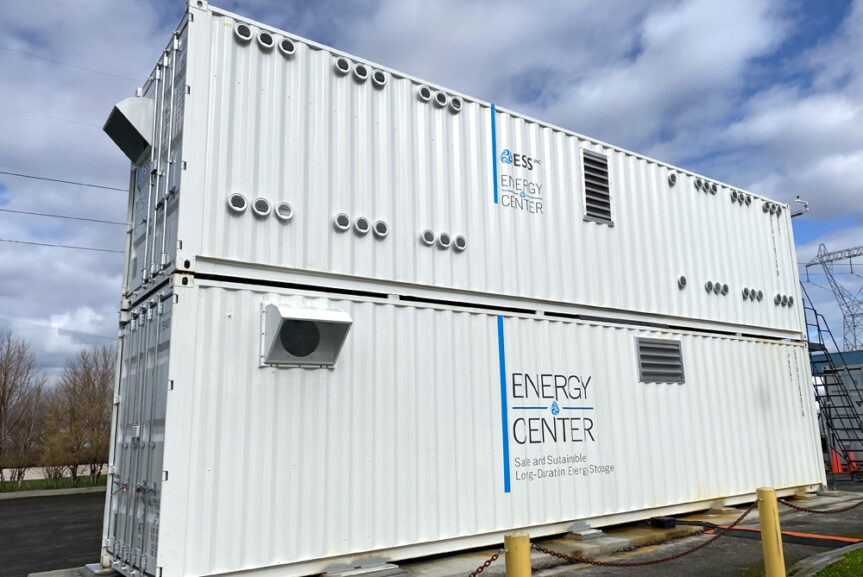Lockheed Martin has announced plans to launch a flow battery energy storage system based on what it said would be a new electrochemistry, comprising “engineered electrolytes”, within “little more than a year.”
The company told BBB its proprietary flow battery, which would be marketed under its GridStar storage brand, would be designed for utility-scale projects to provide “flexible, durable, and over six hours energy storage”.
A Lockheed spokesperson said the R&D for the battery is mainly being conducted at its facilities in Massachusetts.
Meanwhile, the company said it continues to sell its existing GridStar lithium-ion battery storage system in the North American market— which would potentially be sold alongside the future flow battery BESS.
“As the energy storage market develops, we see the market for energy storage systems segmenting by scale and required energy duration,” the spokesperson told BBB.
“Different technologies will be better positioned for different applications. To that end, we see a demand for both lithium-ion battery systems and long-duration flow battery systems, based on the different demands of the market and technology attributes.”
Lockheedvice-president Frank Armijo has said the new flow battery BESS would be different to “conventional” flow batteries using materials such as vanadium and zinc bromide because it would use “low cost earth metals with chemicals that are also inexpensive”.
However, Lockheed is staying tight-lipped about details relating to the production process— and has not said when its new product might be on the market.
BBB reported last month that Lockheed had teamed up with Cypress Creek Renewables to install 12MWh of GridStar lithium-ion energy storage systems for 12 solar-plus-storage projects in North Carolina.
Under a separate supply agreement signed with Peak Power, a provider of energy storage solutions, Lockheed plans to deliver a total of 17MWh of lithium battery systems to Ontario, Canada and along the eastern coast of the US.












